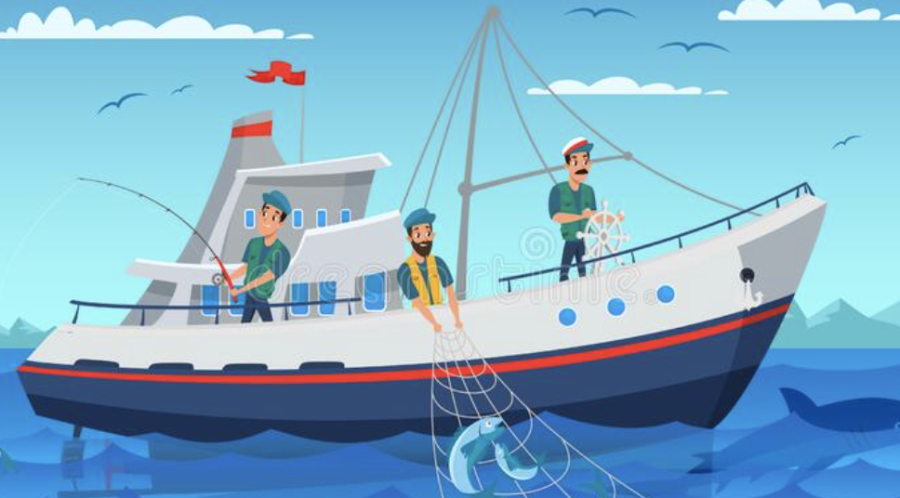What Are The Impacts of Recreational Fishing on Marine Ecosystems?
AP Environment Science students share their Fisheries Research Project
March 22, 2023
Recreational fishing, also known as sport fishing, is done for leisure and enjoyment rather than for commercial or subsistence purposes. It typically involves the use of fishing gear such as rods, reels, hooks, and lures to catch fish, which are then released back into the water. Recreational fishing can be done from the shore, boats, pier, or dock. It can be a solitary activity or a group activity and can take place in a variety of settings, freshwater or saltwater. Recreational fishing can also be done by using different types of fishing techniques such as fly fishing, bait casting, and spin fishing. Unlike the commercial fishing industry, recreational fishing is not caught in mass quantities for profit but simply for personal entertainment or competition. However, unregulated, this can result in major environmental impacts. Focussing on saltwater, recreational fishing is considered a major stressor in marine ecosystems, which can negatively impact biodiversity, species populations, and ecosystem services. In some cases, it can cause population declines of targeted species and lead to the disappearance of organisms from an ecosystem.
The inexperience of recreational fishermen results in improper fishing methods and releasing techniques. The lack of knowledge in recreational fishers can have cascading effects on larger ecosystems. There are many impacts of fishing mortality that extend throughout ecosystems. They include loss of genetic variability as well as evolutionary and food web changes. Other disturbances due to the disposal of fishing lines, lures, and other fishing equipment, accompanied by improper boating courses can stress or displace marine animals and their food sources, which can cause harm to the ecosystem. Releasing fish after recreational fishing, also known as catch-and-release fishing, is a practice that is intended to minimize the impact of sport fishing on fish populations and marine ecosystems. The idea behind catch-and-release fishing is that by returning the fish to the water, it is able to survive and potentially be caught again in the future. However, it’s important to note that the fish may still be injured or stressed from the experience, decreasing their chances of survival. When this occurs, the marine ecosystem is weakened and the chances for repopulation are reduced.
Ben Haskell, Deputy Superintendent of Stellwagon Bank, has noted a very prominent difference in the impacts of recreational fishing in varying regions. According to Haskell, there is a considerable difference between areas with year-round fishing seasons and the 6 month season in the Northeast. Haskell stated, “Winter weather recreational fishing only lasts for 6 months of the year. For these reasons I don’t think rec fishing has as large an impact as commercial bottom fishing.” In the regulated and protected areas of Stellwagen Bank, it is required “that law enforcement officers are on the water witnessing violations and gathering evidence.” This is a prime example of regulations that must be adapted to areas with extensive fishing seasons and a greater number of recreational fishers. Haskell also understands that “this is very expensive and NOAA and the state don’t have enough officers; however, their presence on the water is a huge deterrence to breaking the law” (NOAA is the National Oceanic and Atmospheric Administration). Simply the presence of any regulations or officials on the water can have a huge impact on the attitudes of recreational fishers and can promote the protection of marine environments.
While it can provide opportunities for people to connect with nature and enjoy the outdoors, recreational fishing can also lead to overfishing and habitat destruction, thus having residual negative impacts on fish populations and other marine life. Being aware of fishing gear usage and techniques, along with the amount and species of fish being caught, can have a positive impact on ecosystems. It is important for recreational fishers to recognize the potential impacts of their activities and take steps to minimize their damage to marine ecosystems.
